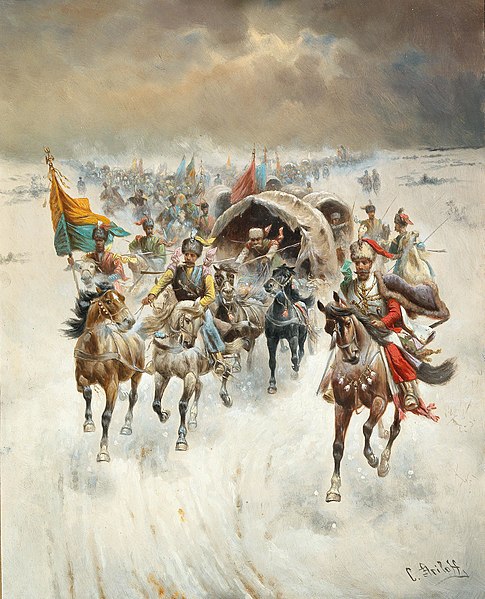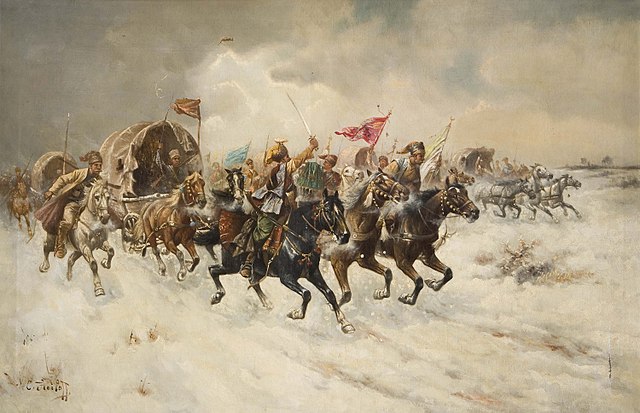
The Thammasat University Library has newly acquired a book that should be useful for students interested in ASEAN history, Thai history, political science, international affairs, diplomacy, and related fields.
Thailand in the Cold War is by Dr. Matthew Phillips, a Lecturer in Modern Asian History in the Department of History and Welsh History at Aberystwyth University, the United Kingdom.
His book addresses issues related to the Cold War, a period of ideological and geopolitical tension between the United States and the Soviet Union, and their respective allies, the Western Bloc and the Eastern Bloc, after the Second World War. It is generally considered to have lasted from 1947 until 1991.
The TU Library collection includes many other books on different aspects of the Cold War.
As Dr. Phillips explains, during the Cold War, Thailand sought to maintain its independence internationally, while also appearing energetically anti-Communist.
And so, as a key political ally of the United States, Thailand participated in the Cold War, especially during the Vietnam War as a principal military base for the United States anti-Communist fighting as well as a main center for American covert operations in Indochina.
Thailand also sent troops to fight on the US side in Korea and South Vietnam.
The USA saw Thailand as a relatively stable state in Southeast Asia which had never been colonized and so had no anti-colonial rebellions found in other nations.
Thailand in the Cold War suggests that the Kingdom was never formally a client state, or a state that is economically, politically, or militarily subordinate to another more powerful or controlling state in international relations. Nevertheless, Thailand was close to the Western side of the Cold War through its internationalized urban communities and modern consumer lifestyles.
Buddhist traditions, as well as popular culture, including film, literature, Thai silk, fashion, tourism, helped to create an ideology of consumerism and affinity with the free world culture as reflected in the United States. This culture and ideology, widely shared in the Kingdom, helped influence Thailand’s international political alliances.

Here are some statements about the Cold War by authors, many of whom are represented in the TU Library collection:
- Let us not be deceived — we are today in the midst of a cold war. Our enemies are to be found abroad and at home. Let us never forget this: Our unrest is the heart of their success. The peace of the world is the hope and the goal of our political system; it is the despair and defeat of those who stand against us. We can depend only on ourselves.
Bernard Baruch, Speech to the South Carolina Legislature, Columbia, SC (April 16, 1947);
- Although the shooting war is over, we are in the midst of a cold war which is getting warmer.
Bernard Baruch, Speech before the Senate’s Special Committee Investigating the National Defense Program (October 24, 1947).
- If the estimate of the House Committee on Foreign Affairs is correct, then Russia has lost the cold war in western Europe.
Walter Lippmann, The Miami Herald (December 18, 1947)
- I suppose that history will remember my term in office as the years when the ‘Cold War’ began to overshadow our lives. I have had hardly a day in office that has not been dominated by this all embracing struggle―this conflict between those who love freedom and those who would lead the world back into thuggery and darkness. And always in the background there is the atomic bomb. But when history says that my term of office saw the beginning of the Cold War, it will also say that in those eight years we have set the course that can win it. We have succeeded in carving out a new set of policies to attain peace―positive policies, policies of world leadership, policies that express faith in other free people. We have averted World War III up to now, and we may already have succeeded in establishing conditions which can keep that war from happening as far ahead as man can see.
President Harry S. Truman, 1953 Farewell Address
- In summary, we have here [in the Soviet Union] a political force committed fanatically to the belief that with US there can be no permanent modus vivendi that it is desirable and necessary that the internal harmony of our society be disrupted, our traditional way of life be destroyed, the international authority of our state be broken, if Soviet power is to be secure. This political force has complete power of disposition over energies of one of world’s greatest peoples and resources of world’s richest national territory, and is borne along by deep and powerful currents of Russian nationalism.
George Kennan, chargé d’affaires at the U.S. embassy in Moscow in an official cable to the U.S. State Department (“The Long Telegram”), February 22, 1946.
- From Stettin in the Baltic to Trieste in the Adriatic an iron curtain has descended across the Continent.
Winston Churchill, address at Westminster College, Fulton, Missouri, March 5, 1946.
- I believe that it must be the policy of the United States to support free peoples who are resisting attempted subjugation by armed minorities or by outside pressures. I believe that we must assist free peoples to work out their own destinies in their own way. I believe that our help should be primarily through economic and financial aid which is essential to economic stability and orderly political processes.
President Harry Truman, speech to a joint session of Congress, announcing what becomes known as the Truman Doctrine, March 12, 1947.
- The United States should do whatever it is able to do to assist in the return of normal economic health in the world, without which there can be no political stability and no assured peace.
Secretary of State George C. Marshall, commencement address at Harvard University that unveils the Marshall Plan, June 5, 1947.
- The main element of any United States policy toward the Soviet Union must be that of a long-term, patient but firm and vigilant containment of Russian expansive tendencies.
George Kennan, Foreign Affairs, July 1, 1947.
- If you don’t like us, don’t accept our invitations and don’t invite us to come to see you. Whether you like it or not, history is on our side. We will bury you.
Soviet Premier Nikita Khrushchev, November 18, 1956.
- Let every nation know, whether it wishes us well or ill, that we shall pay any price, bear any burden, meet any hardship, support any friend, oppose any foe to assure the survival and the success of liberty.
President John F. Kennedy, inaugural address, January 20, 1961.
- Nobody intends to put up a wall!
East German Premier Walter Ubricht, June 15, 1961, less than two months before construction of the Berlin Wall begins.

(All images courtesy of Wikimedia Commons)
